By Allison Applebaum, PhD

Celebrated every November, National Family Caregivers Month is a time to recognize and honor family caregivers across the country. Family caregivers are the everyday heroes of health care. They’re the ones—parents, partners, children, siblings, friends—who step up to help loved ones living with serious illness at home, often around the clock. Today, more than 53 million people in the United States are in this role, which keeps growing. As more health care shifts to the home, caregivers’ roles are more important than ever. But caring for someone isn’t always easy, and it can be overwhelming.
Family caregivers are the everyday heroes of health care. They’re the ones—parents, partners, children, siblings, friends—who step up to help loved ones living with serious illness at home, often around the clock. Today, more than 53 million people in the United States are in this role, which keeps growing. As more health care shifts to the home, caregivers’ roles are more important than ever. But caring for someone isn’t always easy, and it can be overwhelming.
Why Caregiving Can Be So Hard
Being a caregiver can be rewarding, but it’s also very challenging. You might be helping with doctor appointments, medications, daily tasks, and more—especially while managing your life outside of this. You’re also the one who’s there with your loved one during some of the hardest moments. Over time, this can lead to feeling stressed, tired, or even physically sick. It’s normal to feel this way when you’re juggling so much.
That’s where palliative care comes in. Palliative care is specialized medical care for people living with a serious illness. It aims to improve quality of life by relieving symptoms and stress for patients and their families.
How to Get the Support You Need
We know being a caregiver is hard. If your loved one is living with a serious illness, like cancer, heart disease, Alzheimer’s disease, or even chronic pain, palliative care can offer valuable support for you and your loved one. In addition to asking for palliative care, you can explore trusted caregiver resources, such as the Caregiver Action Network and the National Alliance for Caregiving (NAC).
What You Can Do Now to Care for Yourself
Here are some things you can do right now to make caregiving a little easier on yourself:
Recognize Your Own Needs:
It’s easy to feel invisible at doctor’s appointments with your loved one. But remember—you’re an essential part of the care team. Think about what you need, and don’t hesitate to ask for help.
Pay Attention to Your Health
Stress can build up over time, and it’s common to feel anxious or overwhelmed. If you’re struggling, talk to a member of the health care team—whether palliative care or another health care provider—about ways to get extra support.
Remember, It’s Okay to Have Hard Days
Caregiving can be emotionally draining, and it’s normal to feel tired or frustrated. Letting yourself feel those emotions can make things easier. A support network can help, whether it’s friends, family, or even a counselor.
Take Time for Yourself
While your focus may be on your loved one, it’s important to step away to take care of yourself. Whether that means asking someone else to step in or looking into respite care options, taking breaks is vital.
For more advice and helpful information, we encourage you to visit the Caregiver Corner on GetPalliativeCare.org. You don’t have to do this alone—palliative care is here to support you and your loved one.
About GetPalliativeCare.org
GetPalliativeCare.Org is an online resource for patients and families that focuses solely on providing information on palliative care from the point of diagnosis. At GetPalliativeCare.org you can take a short quiz to see whether you or a loved one could benefit from palliative care. The site is provided by the Center to Advance Palliative Care.
Dr. Applebaum is a clinical psychologist, researcher, and caregiver advocate. She dedicates her work to developing new ways to support family caregivers who are taking care of loved ones with serious illness. Having been a caregiver for her father, Dr. Applebaum understands the challenges firsthand. She is committed to addressing caregivers’ mental health needs and providing comprehensive support.
GetPalliativeCare.org is a website providing clear, comprehensive information on palliative care for people living with serious illness. It is sponsored by the Center to Advance Palliative Care.
